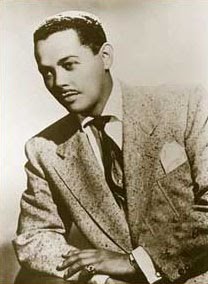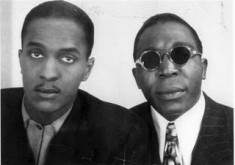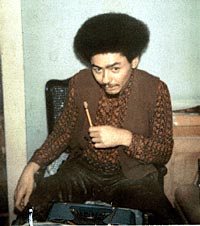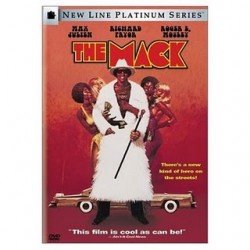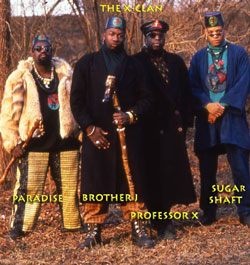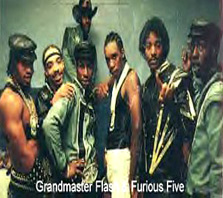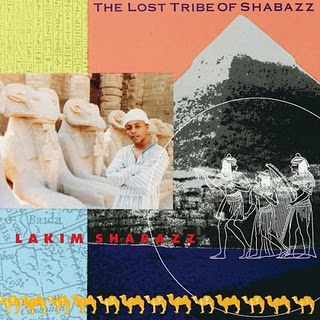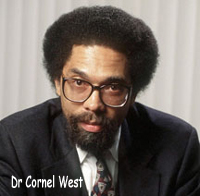360 Deals Are Today’s “Record Deals”
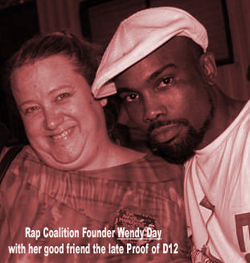 I gotta state right upfront that I am biased against 360 Deals. I understand WHY they exist, I just find them unfairly oppressive in the label’s favor in an industry with a draconic history of jerking artists out of money. I stopped negotiating deals for artists in 2005 because I refuse to do a 360 Deal for any artist! How strongly do you have to hate something to stop your own income over it?
I gotta state right upfront that I am biased against 360 Deals. I understand WHY they exist, I just find them unfairly oppressive in the label’s favor in an industry with a draconic history of jerking artists out of money. I stopped negotiating deals for artists in 2005 because I refuse to do a 360 Deal for any artist! How strongly do you have to hate something to stop your own income over it?
In the early 2000s, the music industry went through a severe change. Music sales plummeted, the importance of the internet reigned supreme, and there was an influx of artists into the industry causing an over saturation never seen before. It’s gotten worse, not better, for the major record labels.
Once used to a healthy profit margin that afforded grand lifestyles for those at the top of the food chain, the major labels became disgruntled as sales dropped while they missed the boat on less profitable digital sales. Taking on the role of dinosaurs fighting for survival, they tried everything from stopping the new digital revolution, to fighting it, to suing it, to band wagon jumping too late. Nothing worked for them. And they still haven’t learned from their mistakes—they still continue to fight the ways the consumers want to receive their music.
So to justify their continuing existence, they decided to take an even larger share of the pie from the ONLY aspect of the equation that they controlled—the artist (or the “content” provided for digital download). Back in the day, labels took roughly 87% of the pie while giving the artists 12% of the money AFTER the artist paid back everything spent on them from that 12% share. This means that if the artist sold $500,000 worth of CDs, and it cost $50,000 to market and promote that CD (a very low example), the artist share of $60,000 (12% of $500k) would be divided between paying the label back that $50,000 and a check for the remaining $10,000. The label would receive $490,000 for its investment and belief in that artist while the artist made $10,000. In exchange for giving up the lion’s share of the sales, the labels always told the artists that they’d make 100% of the touring. Any show money, was the artist’s to keep!
When the shit hit the fan financially for the labels, they decided to tap into the show money, and all other streams of income for the artists, as well. After all, if your profit margin is made smaller, you need to eat more of everyone’s income to keep the fat cats at the top, and the stock holders, happy. Most 360 Deals share in endorsement income (15% to 30% depending on the artist), performance income (10% to 30% depending on the artist), merchandising income (20% to 50%) and Film/TV money (15% to 40%). Before I go any further, I have to thank Bob Celestin (Law Offices of Robert A Celestin www.raclawfirm.com) for supplying me a 360 Deal contract for an indie label and the good folks at Warner Bros Records for leaking me a major label contract for an artist’s 360 Deal. This enabled me to write about REAL contracts instead of just what I’d heard from lawyers, artists, and label folks.
How do labels justify taking an even BIGGER share of the pie from artists? They complain that they are doing all of the developing, investing, marketing, and promoting. Their argument is that they believe in the artist when the artist has nothing, and they feel that assuming the lion’s share of the risk should result in sharing in a lion’s share of the profit. If the label is developing and building the artist to a level of super stardom, they feel they have the right to share in a percentage of everything that super stardom affords the artist. So if they drive the artist platinum, they feel they should get a piece of the tour that came from the fame the label helped the artist build, and a piece of the endorsement deal or film income that came from the fame that the label helped build. I guess I could see this argument better, if I actually agreed that the labels did their jobs well of building artists.
I have a different vantage point of record labels. I see major labels based in tall glass buildings in NY and L.A. that have little interaction with the streets, fans, or the artists. I see them sign artists that have already started to build a buzz or sell music themselves, and then I see them sit back and let the artists’ teams continue to do much of the work themselves. I don’t see major labels taking much risk with their artists, but do continue to put them through a system that is almost an outdated cookie cutter version of how to sell CDs. The labels rarely interact with the fans and are quite out of touch about what the fans want or are willing to buy. They seem to create this assembly line of artists who all sound similar and fit a certain format at radio. They seem to throw a lot of music into the marketplace and work whatever catches on quickly and easily. Most labels do what’s best and easiest for the label, not what’s in the best interest of the artist. Now, in a way, it’s very unfair of me to make this sweeping generalization, because there are some amazing people who work inside of major labels and really go all out for the artists. But I find these people to be the exception, not the norm, and I also find them to be frustrated most of the time because they constantly have to fight with their bosses and the status quo to succeed on a project.
I also find that competitor labels usually hire the best people away from the labels who are experiencing some success, thereby breaking up the synergy within a team once they all learn to work well together. This is why a label like Def Jam or Universal could be so strong in the late 90s and yet be struggling to succeed today. I find that artists rarely look at the teams working at labels and just fiend for a record deal no matter the success of the label or who’s at the label (staff or other artists).
So labels got further away from the fans, the staffs got lazier or more frustrated (perhaps more work for less pay?), the artists took less risk because there were more of them and they were just happy to have a record deal, and the fans started expecting music for free because they could just download it if they didn’t feel like paying for it. Major labels continued reducing spending, slashing budgets, cutting pay, and signing “sure things” (whatever that means). And to justify the spending they were still doing, they decided to offer deals that cut into more of the artists’ income. The argument was that out of 50 artists signed to their label, only one was successful and funding the 49 losses. No other business on earth has such a backwards business model. Imagine if Ford built cars and accepted the fact that every model but the Taurus was meant to be a loss leader, and that the Taurus sales had to make up the loss of every other brand under their umbrella. Huh?
Or imagine if banks lent money for mortgages expecting 99% of the mortgages to default, and 1% of the mortgages were expected to make up the bank’s profits that year. Further imagine if each homeowner paying back their mortgage didn’t actually get to keep ownership of the house after their mortgage was paid back! The bank’s argument would be that they took all the risk on the house, so they should get to retain ownership. The people that lived in the house would still have to pay for all the repairs and upkeep, but the bank would own the house. That’s how the music industry is built. And the folks at the top with the most to lose are the ones fighting to keep this backwards system alive.
People ask me all the time what I think is wrong with the music business. I would like to blame our troubles on the greed of major labels, the proliferation of bad music that the fans don’t seem to want, or the free downloading of (stolen) music. But the truth is that if the artists didn’t agree to these incredibly bad deals, there would not be incredibly bad deals. If a bank existed that kept ownership of your house after you paid back your mortgage, you would never do business with that bank. Yet all day, every day, there is a long line of artists willing to sign their lives away to record labels because they don’t understand, or possibly don’t know about, the consequences. Or maybe they just don’t care. Maybe the need for fame overpowers the need for money…until they realize they aren’t making money but someone else is. I find that it takes artists 3 to 5 years to realize they are getting jerked. In that time, a lot of money is lost and one or two things happens: either the artist is replaced with a new artist willing to make less money, or the artist has enough value to renegotiate their deal and share a larger piece of the pie. Sometimes, they even start their own labels and repeat this onerous process with their own new, unknowing artist! They got jerked, so they turn around and jerk someone else.
But back to 360 Deals. This new model will exist until artists are willing to say “no!” and I don’t see any signs of that happening. What I do see happening are artists becoming more entrepreneurial, and instead of signing to major labels, I see them finding their own investors and building their own teams who can help them succeed. There are enough laid off employees of record labels who’ve experienced some success out here to hire to run and work at indie labels. There’s a huge void in the marketplace to deliver the kinds of music fans want…and that’s not just one kind of music.
What I learned from both the buzzes of Drake (lyrical mainstream artist who’ll succeed at radio) and Gucci Mane (not-so-lyrical street artist with gutter stories and experiences to share) is that fans still want music. Major labels are still slow to respond to the needs of the streets and the internet is only speeding up and splintering demand further. There’s still a market for good music that the fans want. Our job is to give it to them. And if we do so with a fair and equitable split of the profits, the artists can build lifetime careers and we can all make money!
I hear the artists who sign 360 Deals say that they feel they have to sign these deals because the label won’t work their projects if they don’t give up a bigger split. I hear the artists say they want the labels to help them land endorsement deals, major tours, and TV Shows and film roles—but I’ve yet to see a major label do this. Let’s be realistic, these major opportunities go to the biggest stars and the ones who apply themselves directly in those alternate areas. If you hire a film agent, and take acting lessons, you may get increased roles in film and TV. If you increase your fame through music sales, your endorsement opportunities increase. Beyonce landed a Revlon contract because she was a star, Revlon did not make her a star. How many new artists are the major labels building to be stars? In 2009, it was Taylor Swift and Susan Boyle out of all of the releases that came and went. And neither of them were developed by the major label system—one was a product of an indie label and the other a product of a TV show. The majors had access because they did deals with middlemen and then applied their systems behind those movements that were already happening. Maybe that really is the job of a major label in today’s environment.
In my opinion, a 360 Deal is an excuse for a major label to take a bigger piece of the pie without doing any additional work. It’s insurance on their part. If the artist does blow up by chance, it gives them more opportunity to make a bigger cut. And that’s just smart business. I guess if they called it what it really is, I’d be less annoyed by it: the price of doing business with a major label. If they played a bigger role in building overall success, I’d be happy to see them share in a bigger piece of the pie at the end of the day.
Example of a “360 Deal” Artist (this is not an actual artist example):
Male rapper based in Atlanta with a strong following. He has his own team of inexperienced friends and family around him and a very strong street following. The DJs, fans, other artists and industry are supporting him and propelling him forward. With no real single or CD in the marketplace, demand is high—he’s getting $30,000 a show and performing three or four times a week for the past few months. This will last about 6 months, approximately. He’s put out a series of mixed CDs, for free, over the past year. The label signed him a year ago to a 360 Deal but hadn’t begun to promote him yet because their roster was full. The artist got tired of waiting and began putting out a new mixed CD every month to build his buzz.
Advance: $75,000
Album Budget once popularity increased: $350,000
Recoupable Marketing and Promotions: $750,000
Monthly Show Income: $420,000
Endorsement Deal: $50,000
Album comes out and sells a total of 350,000 copies (it was a very commercial album but the artist had been very street, almost gutter, up to the point of his album release so fans didn’t really embrace the album as expected).
Album income for label: $3.5 million
Artists’ Share after Recouping: negative balance of $405,000
$750,000 + $75,000 = $825,000
12% of $3.5 mill = $420,000
$825,000 – $420,000 = $405,000
Artist’s endorsement Deal Share: $37,500
75% of $50,000
Artists Share of Touring Income: $1,764,000
70% of $420,000 x 6 months
Artists Share of Publishing Income (50%): $100,000 (estimate of mechanicals and ASCAP/BMI royalties)
Income for Label: $4,773,500 gross income on an investment of $825,000
$3,500,000 sales
$405,000 recoupment
$12,500 endorsement income
$756,000 tour/show income
+ $100,000 publishing income
$4,773,500 gross income
Less Staff costs
Less Day to Day operating expenses
Less Taxes
Income For Artist: $1,122,375 income
$37,500 endorsement income
$1,764,000 tour income
+$100,000 publishing income
$1,901,500 sub total
-$405,000 recoupment
$1,496,500 gross income
Less 20% management fee
Less 5% Business Manager fee (Accountant)
Less Tour costs/legal costs/tour manager/DJ/Operating expenses/taxes
Let’s compare gross incomes…
Artist made 1.5 million while label made 4.7 million
Artist share: 24%
Label share: 76%
Let’s compare Net incomes before taxes…
Artist made approximately $1 million while the label made approximately $4.5 million
Artist share: 18%
Label share: 82%
If the label is taking all of the risk (they are not), putting up all of the money in all of the right places (they are not), devoting all of their attention to this one artist (they are not), and doing most of the work (they are not), then this business model makes sense for everyone involved. But if the artist is doing the bulk of the work, risking their career in the hands of the label, and coming out of their own pocket for many expenses, then this business model is hugely skewed in favor of the major label.





